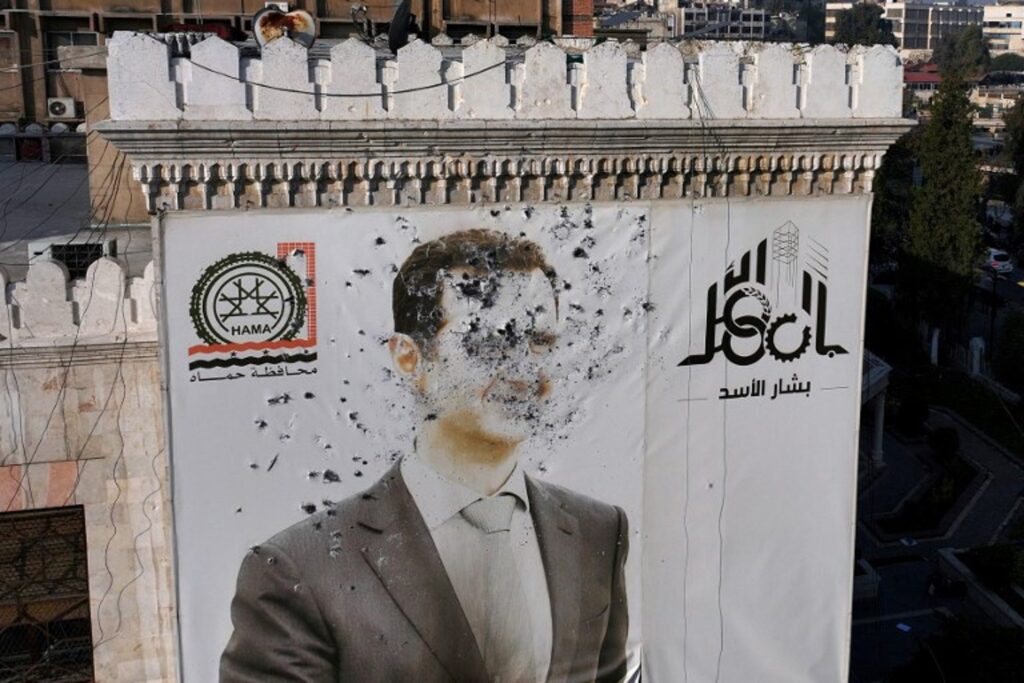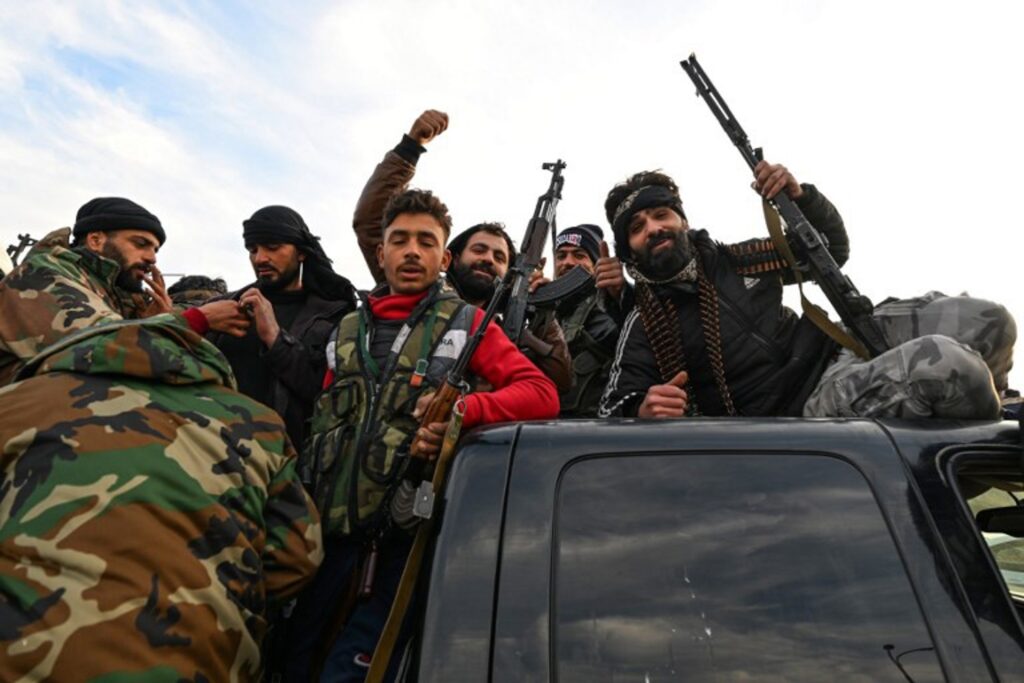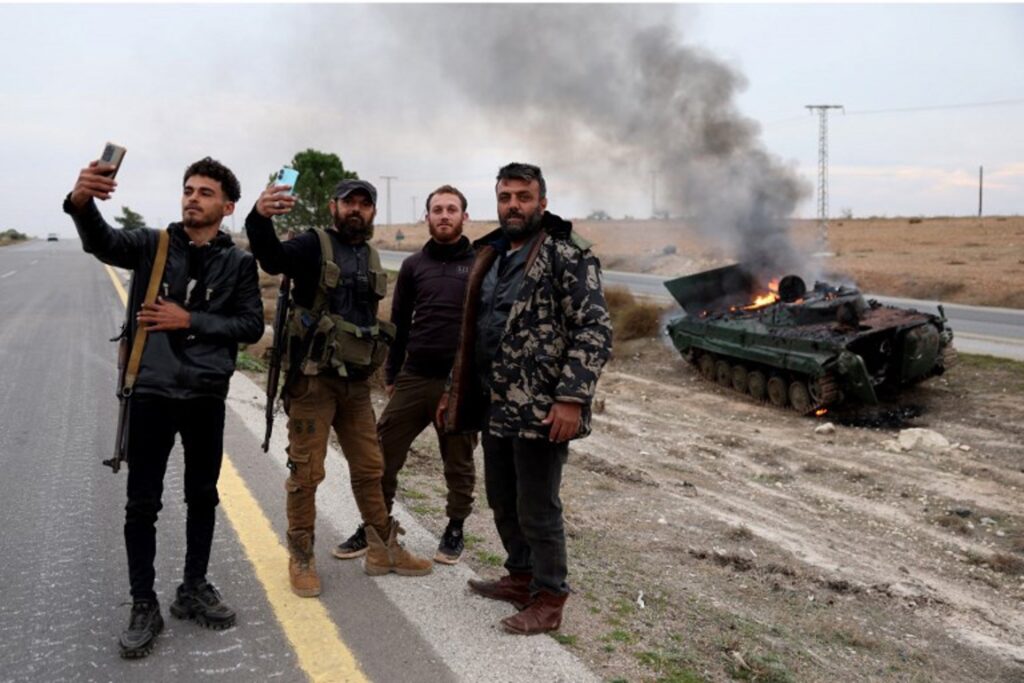Rebel groups led by radical Islamists have taken control of the Syrian capital Damascus on Sunday, liberating political prisoners and inviting exiled Syrians to return to a "free Syria".
The Syrian Observatory for Human Rights confirmed that President Assad had left Syria. "Assad left Syria via Damascus International Airport before military and security forces vacated the site."
Assad's current whereabouts are not known. He succeeded his father Hafez al-Assad in 2000 at the age of 34. In 2011, he faced the Arab Spring, a series of pro-democracy protests that quickly turned into a blood-soaked civil war involving various jihadist forces, including Islamic State.
With massive support from Russia, Iran, and Hezbollah, Assad managed to stay in power, presenting himself as the protector of Syrian minorities against extremism and chaos. The former ophthalmologist oversaw a brutal crackdown on any dissidents. The Syrian civil war resulted in over 500,000 deaths and displaced half of the population.
"Today we announce the end of this dark period and the beginning of a new era for Syria," the coalition of rebel groups wrote in messages shared on Telegram. Residents of the capital took to the streets after the news of Assad’s departure. Videos on social media show people dancing and singing, and witnesses report celebratory gunfire.
Peace at last?
The United Nations envoy to Syria, Geir Pedersen, on Sunday urged "cautious hope" following the takeover of Damascus by Islamist rebels, describing it as a "decisive moment" that ended half a century of Assad family rule.
Pedersen noted that almost 14 years of civil war in Syria have been a "dark chapter that has left scars." He said that Sunday marks a turning point in Syria's history and expressed his "deepest solidarity with all those who have borne the weight of death, destruction, detentions, and human rights violations."
He said there is a "clear desire expressed by millions of Syrians for stable transition agreements to be implemented and for Syrian institutions to continue functioning."
The Syrian Prime Minister Mohamed al-Jalali expressed readiness to cooperate with any new "leadership" chosen by the people. He stated that he would be in his office at the government headquarters on Sunday morning for any power transfer procedures. In a video on his Facebook page, al-Jalali said that Syria "can become a normal state, fostering good relations with its neighbours and the world. However, this matter will be up to the leadership chosen by the Syrian people."

A bullet-riddled portrait of Bashar al-Assad adorning Hama's municipality building after it was defaced following the capture of the city by anti government fighters, on December 6, 2024. In little over a week, the offensive has seen Syria's second city Aleppo and strategically located Hama fall from Assad's control for the first time since the civil war began in 2011. Omar HAJ KADOUR / AFP / Belga
Public institutions remain under the control of the Prime Minister until an "official transfer of power. "The commander of Hayat Tahrir al-Sham, leading the rebel offensive in Damascus, urged his fighters on Sunday to avoid approaching public institutions.
"All military forces in Damascus are strictly forbidden from nearing public institutions, which will remain under the former Prime Minister’s control until the official transfer," stated a communiqué from al-Jolani. "Firing into the air is also prohibited," he added in the message shared on the rebel coalition’s Telegram channel.
Videos circulating on social media showed rebels in the palace courtyard and at the entrance gates. They reportedly entered the premises without resistance. Government employees and security forces are said to have fled.
One of the most symbolic moments of Damascus’s fall was the liberation of the notorious Sednaya prison, where thousands of opponents to the al-Assad dynasty’s rule had been imprisoned, tortured, and killed.
Europe watches
Belgium's freshly appointed Foreign Affairs Minister Bernard Quintin (MR) said on Sunday that the fall of Bashar al-Assad's regime presents "a new opportunity" for Syria's future.
Minister Quintin confirmed that the Foreign Affairs department is closely monitoring the changing situation in Syria. Quintin believes the current circumstances offer a new beginning for the nation and he labelled Assad's regime as "responsible for countless horrific crimes." He emphasised the need for international and humanitarian law to be followed in Syria.
France welcomed the fall of Bashar al-Assad's regime after more than 13 years of severe repression against the Syrian people. Christophe Lemoine, a spokesperson for the Foreign Ministry urged Syrians to reject extremism.
"As the Assad regime continuously pitted Syrians against each other, fracturing and fragmenting the country, the time for unity has come," Lemoine stated in a communiqué. "France calls for a peaceful political transition that respects the diversity of the Syrian people and protects civilians and all minorities."

Anti-government fighters celebrate at Umayyad Square in Damascus on December 8, 2024. LOUAI BESHARA / AFP / Belga
Assad's location unknown
A high-ranking official from the United Arab Emirates urged Syrians on Sunday to work together. "We hope to see Syrians work together and not witness another episode of chaos," said Anwar Gargash, adviser to the UAE president, at the Manama Dialogue conference in Bahrain.
Gargash refused to confirm or deny reports that the Syrian president had taken refuge in the UAE. "This is ultimately just a footnote in history," he said when asked about Assad's whereabouts. "I don't think it's important," was his only answer when pressed by journalists.

